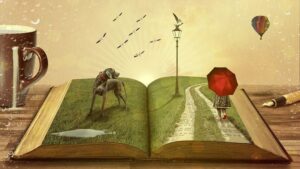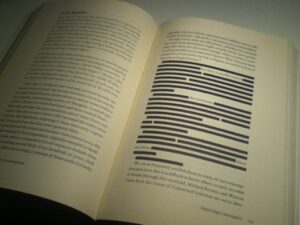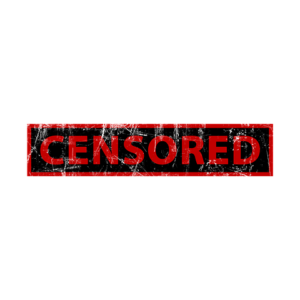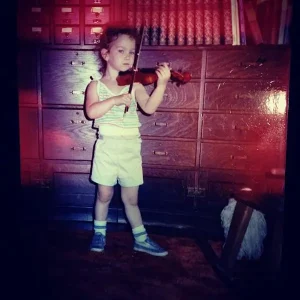

I grew up reading. When my grandparents wanted to go on a special outing with me, we went to Barnes and Noble to pick out a good book. Now, when my sister and I want to go out together, we stop by a Half Price Books looking for something we haven’t read. I spent most of my free time growing up in my school libraries and every weekend (sometimes twice if I really begged) my dad took me to the public library around the corner. Books have shaped who I am. They have provided me with a safe place to learn and question.
I chose the topic of Book Banning because one of my Professors sent me an email with the alarming statistics of books that have either been banned or are being challenged. It’s scary to realize that we aren’t living in a society where intellectual property is respected. Book bannings are a direct attack on the essence of the United States- individualization and personal expression. In the United States is driven by a complex set of factors, including moral and religious concerns, political ideologies, concerns about offensiveness, protection of children, and lack of understanding or misinformation. However, it is important to note that book banning often raises significant issues related to free speech and intellectual freedom, and many individuals and organizations work to promote the freedom to read and access to a wide range of ideas and information.
Here is what Book Banning Looks Like Today

Book bannings as defined by PEN American, a 100 year old non-profit organization dedicated to fighting censorship, “as any action taken against a book based on its content and as a result of parent or community challenges, administrative decisions, or in response to direct or threatened action by lawmakers or other governmental officials, that leads to a previously accessible book being either completely removed from availability to students, or where access to a book is restricted or diminished.” There are many ways to look at book banning. If I’m an adult not all that interested in reading books, I may not feel very affected by it. However, there is one type of book banning that may have affected all of us at one point in time, that’s the censorship taking place in school libraries, school classrooms, and school districts.
When discussing the curriculum or what books are made available at school libraries, the practices of collection maintenance and weeding are followed. These guidelines are published by the American Library Association (ALA) in order to provide policy on what resources should be available in libraries. School libraries annually inventory to “determine losses and remove damaged or worn materials”. Librarians also consider the collection of materials and evaluate whether or not the are relevant to the curriculum. Librarians at universities will also do this and in addition evaluate if the material aligns with the university’s mission and needs 1. This systematic appraisal allows for regular updates to library collections in a safe and democratic way. The general public doesn’t often realize these types of updates happen as a routine part of a librarians responsibility. If content is banned legislatively, or is not aligned with the mission of the library owner, then removal is encouraged.
The three main themes of books that have been challenged are race and racism, LGBTQ+ representation, and sexually explicit content. The ALA poll shows that the majority of public school parents believe in making this content available on an age appropriate basis. 84% of voters believe that works focused on the the role of slavery and racism in forming America should be present. This includes works such as as the “1619 Project” and literature that use racial slurs like “Huckleberry Finn,” and “To Kill a Mockingbird”. Similarly 68% of voters agree that novels for young adults like “Ghost Boys” and “The Hate U Give” that show violence against black people are necessary to have available. 65% of voters agree that fiction and non-fiction books about lesbian, gay, and transgender individuals, such as “George” and “This Day in June” should be present in public and school libraries. And 57% of voters think that books like “Beloved” and “Looking for Alaska” that are fiction and have sexually explicit content, including scenes of sexual violence should be included in the library catalog.
In a poll published by YouGov in collaboration with CBS News, more than 8 out of 10 Americans don’t believe you should ban books for discussing race or criticizing U.S. history. This 2022 survey “was conducted with a nationally representative sample of 2,494 U.S. adult residents interviewed between February 15-18, 2022”. In an innovative approach, the ALA created a poll focusing on public and school libraries. This poll highlighted the “ near-universal high regard for librarians and recognition of the critical role that public and school libraries play in their communities.”2
The ALA poll shows that “7 in 10 voters oppose efforts to remove books from public libraries, including majorities of voters across party lines”. It also demonstrates that 74% of public school parents trust that school librarians make good decisions on what books are available for their children. In a breakdown of political parties, the ALA survey shows that 71% of voters oppose efforts to have books removed from their local public libraries. This includes 75% of Democrats, 58% of independents, and 70% of Republicans who voted. These findings exhibit that a wide spectrum of voters are concerned with the movement to ban books from school and public libraries.
Despite these statistics when I open up my news tab it feels like there are so many people protesting books in school and public libraries. The ALA identifies that more than 330 unique cases of book bans and challenges were reported between September 1st and November 30th of 2021. These totals have been drastically increasing since 2019 and continue to increase into 2023. However it is not just students and parents who are affected, it is also librarians and library staff who are impacted.3
In the New York Times article, “With Rising Book Bans, Librarians Have Come Under Attack“, reporters Elizabeth A. Harris and Alexandra Alter tell the story of Martha Hickson. Hickson is a high school librarian in Annandale, New Jersey whose library has recently been called into question by parents in local school board meeting. In the school board meeting, Hickson was called out by name by a parent reprimanding her for letting the parent’s 16 year old check out books with queer characters. In the meeting parents hurled accusations that the librarians were “grooming” their children.

Another point discussed in this article is the misnomer that all librarians are liberal. Carolyn Foote, founder of the group Freedom Fighters, which organizes to defend librarians and a retired librarian confronts this idea stating that curating a well rounded selection of books is not partisan it is a matter of professional ethics. Challenging books in public schools has become a destructive trend intent on limiting librarian’s jurisdiction. Book bannings violate librarians’ ability to exercise their expertise.
Patricia Wong, ALA President, discusses that the ALA survey and subsequent article, “Large majorities of voters oppose book bans and have confidence in libraries” saying the “survey results confirm what we have known and observed: that banning books is widely opposed by most voters and parents”. She follows that she is “thrilled to see that parents have a high degree of confidence in school libraries’ decisions about their collections and very few think that school librarians ignore parents’ concerns. This truly validates the value and integrity of library professionals at a time when many are feeling burnt out because of accusations made by small but loud groups.”4
So what can we do to support our librarians and democracy in our education?
Please pay attention to the news. Even if it isn’t your state or school district, it is someone’s. Get involved in local organizations and libraries that are working against this type of censorship.
This is a link to a list of organizations: https://libguides.law.uconn.edu/c.php?g=345484&p=2327933 Get in touch with a local librarian and see what they need/recommend.
Lastly, READ BANNED BOOKS.
The ALA Banned & Challenged Books website encourages participation in Banned Books Week (September 26- October 2) by reading and discussing a banned book. Banned Book Week has existed since 1982. An effort of bookstores and libraries to create space for read-outs of banned and challenged books.
Resource:
https://www.ala.org/advocacy/bbooks/frequentlychallengedbooks/top10

- American Library Association. Collection Maintenance and Weeding, (ALA, 2018) ↵
- American Library Association. Large majorities of voters oppose book bans and have confidence in libraries, (ALA, 2022) ↵
- Elizabeth A. Harris and . With Rising Book Bans, Librarians Have Come Under Attack, ( New York Times, 2022) ↵
- American Library Association. Large majorities of voters oppose book bans and have confidence in libraries, (ALA, 2022) ↵




31 comments
Iris Reyna
Congrats on your article nomination Sophia, book banning makes me sad because the one thing that keeps me sane is reading a book, of any kind. I love reading to hear that books were being banned broke my heart. L loved hove you incorporated your experience with books into your article, about your grandparents and the bookstores. The images did a good job of showing that books are not just books they are different kinds of worlds within each. I enjoyed the support at the end of the article, Good job.
Abbey Stiffler
Many congratulations on your nomination! I had no idea what the terms were when it comes to banning books, so amazing work. This subject interests me greatly because some of the novels I read as a child are currently over-limits to young readers. That seems crazy to me because they won’t get to enjoy that book in the same way that I did. I actually had a book ban in my high school senior year.
Karah Renfroe
I loved this article as I am also an avid reader and have grown up reading as well! The first time I learned about book censorship is when I read “Animal Farm” by George Orwell. This is one my favorite books to date, but I remember being surprised to learn that at one point its circulation was severely restricted. I think it is important to encourage free speech and the sharing of ideas and history for the future of our children, country and world. I liked the section discussing what we can do to help libraries, this helpful for the reader to help create the necessary change needed after learning an educating themselves further on the topic!
Barbara Ortiz
Congratulations on your nomination for such a great article, Sophia. I agree how scary it is to live in this society that feels the institution needs to be the parent and determine for us what we can and cannot read. As I also plan to teach history in middle and high schools, I am also warry of all the legislation floating in many states trying to dictate how and what history can be taught in schools. Like a toddler, they feel can just leave out the “yucky” parts of history as if they never happened. I’ll be continue to fight with you.
Peter Alva
This article was interesting because of the fact that we are currently living through book bans in the U.S. In states like both Texas and Florida, we are looking at the banning of certain books in schools. Some of these books are important to see the white lines of what this country is. It amazes me that we as a country have to go this far as to ban books because they hold certain ideas and it begs the question. If we are banning things like books are we really the land of the free?
Osondra Fournier-Colon
Congratulation on your nomination. This article is a great source to understand the problems that Book Banning creates in education and society. Book Banning is deeply upsetting as someone raised around books and found books to gather information and inspiration. Also, the stripping away of needed representation within the literature, such as LGBTQ+, characters of color, and historical controversy/events, is shocking. I am glad you chose to do this topic. It needs to be discussed more often.
Sudura Zakir
Congratulations on getting nominated and awesome work on your writing about book banning. Well, I started reading this article because of the title. Awesome work because I am not familiar with the terms banning books at all. I learned about it from your article and this context gave me ideas on this topic. I liked the term democracy in education because we need the freedom to receive knowledge about everything.
Gabriella Parra
Sophia! Congratulations on your nomination once again! First of all, I REALLY enjoy your writing style. Second, you chose such a good topic! I’m really grateful you wrote this piece. I was a young reader as well, but I haven’t looked into today’s situation when it comes to banning books. I have only heard talk about it. I love that you gave tangible steps for action! Great job on this!
Carina Martinez
Congratulations on your article being nominated. This was a very interesting read. I enjoyed how you included your personal experience.
Sydney Nieto
Congratulations on having your article nominated. I liked how you had opened your article on personal experience. I heard about this issue happing before and do think that certain books shouldn’t be banned as it shows how our world was shaped. I do think that it unfair how librarians are getting the heat as they are just doing their job.